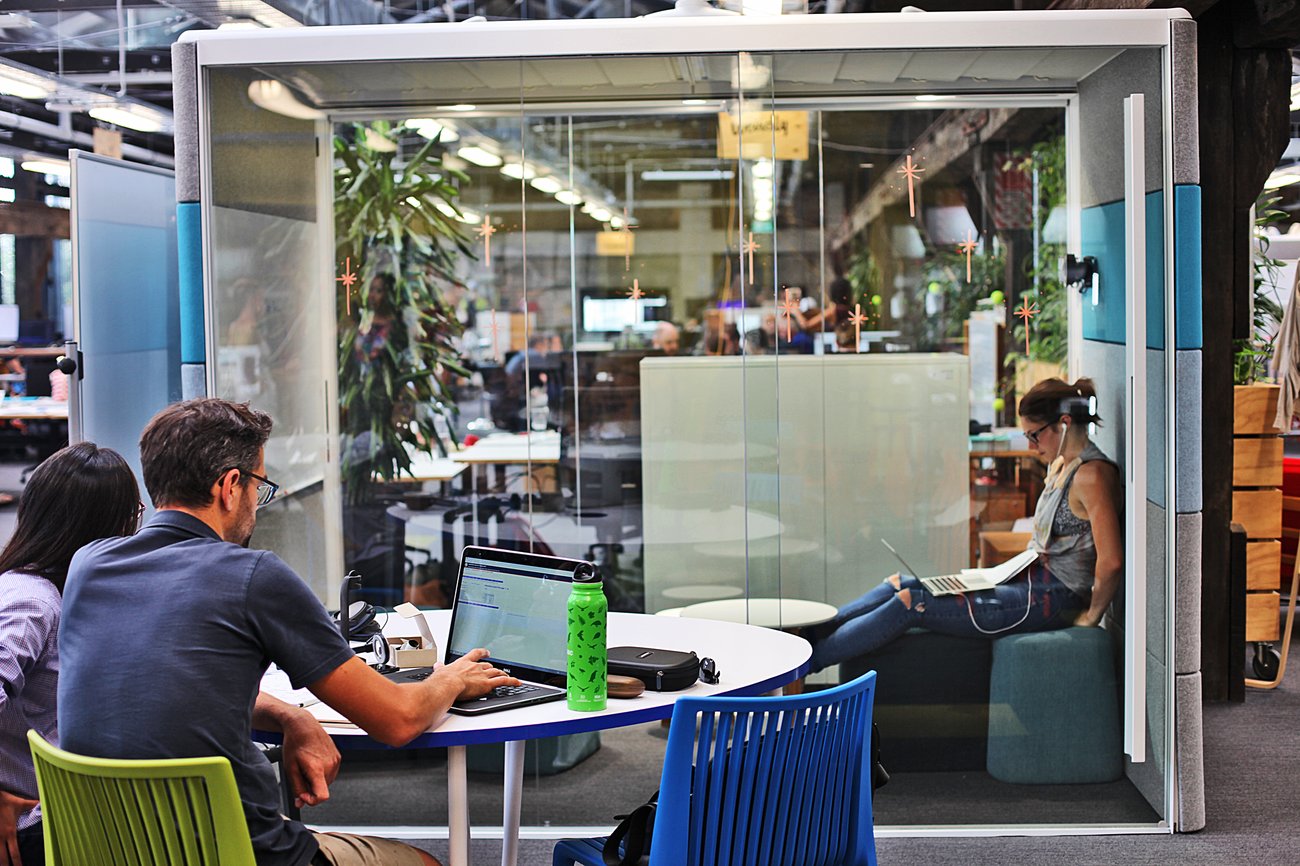
For those new to the concept, co-working spaces are places where an operator specifically designs an office for collaboration and variation in mind (think open plan, mixed-use spaces). They then sublet the spaces for a monthly fee to freelancers, entrepreneurs, start-ups and even larger companies.
From there, members have access to either a hot desk or fixed desk, conference rooms, a kitchen, creative common areas, as well as some sweeteners thrown in the mix (unlimited coffee is always an alluring perk).
Co-working is no small-time movement, either. More than one million people globally are expected to work within a shared space by the end of 2017, showing that what was once dubbed a trend has now become a permanent fixture in the world of work.
Many factors have contributed to this uprising, such as the wants and demands of Millennials that are entering the workforce, changes in the way people work due to technology advances, the increased number of freelance workers, who are expected to outnumber fixed employees by 2020 in the US, as well as a desire for increased collaboration and community.
Co-working spaces have now become a sub-sector of the real estate industry, which means that the industry is now taking a particularly strong interest in co-working spaces and their operators.
A recent report by real estate firm Bayleys found Auckland’s co-working spaces have grown from three co-working operators taking up around 1400 square metres of space in 2011 to 13 operators running 13,800 square metres of space in 2016.
This number will have grown even more by the end of 2017, with GridAKL expanding to include two new buildings leased by co-working space provider Generator, as well as BizDojo’s new co-working site in Takapuna, its site in development in Ponsonby and the just announced Sylvia Park site, which will be open in mid-2018.
As a sign of just how vast the co-working movement in New Zealand has become, BizDojo has experienced 300 percent growth in one year, going from 14 staff to 45 and boosting turnover from $2.2 million to $12.5 million.
The expansion to Sylvia Park means BizDojo now has seven co-working sites in the works across Auckland, Wellington, Christchurch and Queenstown. At Sylvia Park, it will have room for up to 300 residents, bringing the total number of BizDojo members in Auckland to over 1500.
{% gallery ‘bizdojo-offices’ %}
BizDojo co-founder Nick Shewring says the company will soon be occupying well over 16,000 square metres of space, which makes it the largest co-working space provider in Australasia behind WeWork.
“At our retreat a few weeks ago our staff said, ‘Why are we expanding so quickly?’ Part of it is that often as a business, you can’t control the timing of opportunities. We ended up in this interesting position where we reached a critical tipping point and a lot of landlords were approaching us. That doesn’t usually happen in a linear way,” Shewring says.
“We also realised that actually, the impact we can achieve as a bigger organisation with a much bigger community is far greater than what we can achieve as a smaller community.”
Shewring says co-working spaces are something those in the property sector now have at the front of their mind when designing new developments.
“I think for a lot of landlords, they see that this trend of co-working is now recognised as a mega-trend. Co-working, in eight years, has gone from a bootstrapped idea to a common vernacular for how anyone should design their buildings,” he says.
Case in point: The site that BizDojo will be based out of in Sylvia Park shopping centre is an office tower called No.1 Sylvia Park, which is currently under construction.
Kiwi Property chief executive Chris Gudgeon, which owns Sylvia Park, said the move to include and design the site for BizDojo highlights the rise in popularity of shared working spaces.
“Co-working is a growing trend world-wide, and is quickly becoming an important sector in New Zealand’s commercial office market,” Gudgeon said.
He also said its inclusion would bolster the shopping centre’s vision to become a ‘town centre’.

An artist’s impression of No.1 Sylvia Park
“As Sylvia Park continues to grow, so does the need for services supporting our retailers and the local community, which is why BizDojo is a natural fit for No.1 Sylvia Park.”
Shewring says the fact that co-working operators have an incredibly diverse mix of businesses under their umbrella mean they’re attractive and reliable as a tenant.
“We would require a colossal market change to create a ripple effect to our business because we’ve got people from so many different walks of life and so many different industries. From a landlord’s perspective, they’re not putting all their eggs in one basket.
“They’re making a huge capital investment into their property and infrastructure and they’re looking for a way to de-risk it and for a way to make more impact with where they put their money, so we’re definitely seeing that more and more landlords are thinking far more about how they activate their assets and how they lower the risk.”
Another reason co-working spaces are appealing is due to the fact it helps a network of Kiwi businesses grow, he says, which is a win-win for everybody.
“We are fueled and powered by local companies scaling and growing. We’re a symbiotic business and our success is driven off the success of our community, so for a landlord that’s quite tantalising.”
So are there more co-working spaces on the horizon for Aotearoa? Watch this space – BizDojo’s next idea is to roll some out in the regions.




